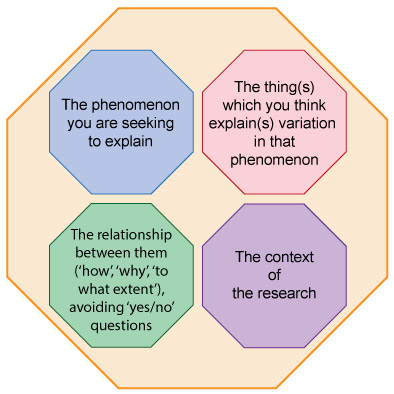5 Developing research questions
By now you should have a clear direction for your research project. It is now necessary to think about the sorts of questions that you need to formulate in order to define your research project. Will they be ‘what’, ‘how’ or ‘why’ type questions? An important point to bear in mind, as discussed above, is that the wording of a question can be central in defining the scope and direction of the study, including the methodology. Your research question(s) do not necessarily have to be expressed as question(s); they can be statements of purpose. The research question is so called because it is a problem or issue that needs to be solved or addressed. Here are some examples of research questions that focus on different areas of HR. They are expressed as questions but they can easily be changed to research statements if the researcher prefers to present them in that way.
- How do the personal experiences and stories of career development processes among HR professionals in the UK and in Romania differ?
- To what extent do NHS managers engage with age diversity?
- How are organisational recruitment and selection practices influenced by the size of the organisation (e.g. small and medium-sized organisations, large national companies, multinational corporations)?
- In what ways, and for what reasons, does the internal perception of the organisational culture vary in relation to the culture that the organisation portrays in official documents?
- How are absenteeism levels linked to employees’ performance?
The process of producing clearly defined and focused research questions is likely to take some time. You will continue to tweak your research questions in the next few weeks even after you have written your research proposal, read the relevant literature and processed the information. The research questions above are very different but they also have common elements. The next activity invites you to think about research questions, both those in the examples above and your own, which may still be very tentative.
Activity 6
Make notes on the following questions:
- What constitutes a research question?
- What are the main pieces of information that a research question needs to contain?
Discussion
This activity helped you to focus further on your research aims. What you wrote will guide you towards the development of your research questions. Figure 4 shows that research questions can contain a number of elements.

You should now note down possible research questions for your project. You might have only one question or possibly two. You do not need too many questions because you need to be realistic about what you can achieve in the project’s time frame. At the end of this course you will come back to your question(s) and finalise them.
